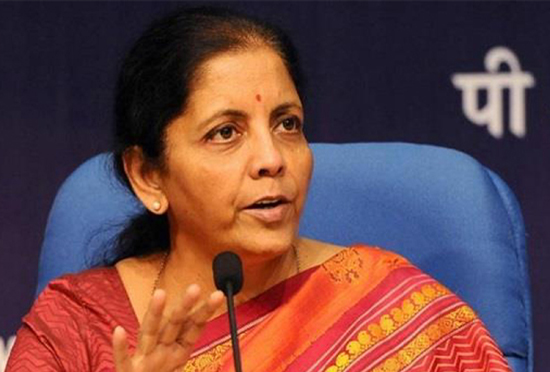NEW DELHI, Mar 3:
The armed forces are “proportionately” retaliating to Pakistani actions along the Line of Control (LoC) in Jammu and Kashmir and effectively containing cross border infiltration, Defence Minister Nirmala Sitharaman said today.
She also said there was “no rethinking as of now” on the Armed Forces (Special Powers) Act (AFSPA), which has been in force in Jammu and Kashmir and several insurgency-hit States in the Northeast.
The act gives the security forces special rights and immunity in carrying out various operations in disturbed areas. There has been a long-standing demand from various quarters in J-K and the Northeast to withdraw it.
Asked about the situation in Maldives, Sitharaman said “we are watching it”.
On the situation along the LoC, she said, “We are able to contain infiltration to a large extent. We are also able to retaliate proportionately (to Pakistani actions).”
She said security forces are “eliminating” the infiltrators at the LoC before they could sneak into the Indian side but added that it would be not right to say that no one manages to infiltrate.
The LoC has remained volatile since last year. According to official figures, 860 incidents of ceasefire violations by Pakistani troops were reported in 2017 as against 221 the year before.
Six Army personnel and a civilian were killed in an attack on the Sunjuwan military station in Jammu on February 10. The attack on the camp had come days after four Army men were killed in Pakistani firing in Rajouri district of Jammu and Kashmir.
After the Sunjuwan attack, Sitharaman had said that Pakistan would pay for the misadventure.
Following the spate of attacks, the Army had given “full freedom” to local Commanders of the Army along the LoC to effectively retaliate any act of violence by Pakistani troops, Army sources had said.
They said the Indian Army has been inflicting heavy casualties to Pakistani troops while replying to Pakistani shelling along the LoC in the last few weeks.
Asked about demands to withdraw the AFSPA from J-K and certain States of Northeast, Sitharaman said “there is no rethinking on it as of now.”
In January, Army chief Bipin Rawat had also said that time has not come to rethink on AFSPA.
“We have never been strong in applying the force the way it could be applied (under AFSPA). We are very concerned about human rights. We are absolutely concerned about collateral damage,” he had said.
Sitharaman said state-run Hindustan Aeronautics Ltd (HAL) will have to scale up production of Tejas Light Combat Aircraft (LCA), asserting that the Government has not “ditched” the project for any other fighter jet.
Sitharaman also said the Government was eagerly awaiting the “Mark II” version of the Tejas and that a number of countries have shown interest in the aircraft indigenously developed by HAL.
“We are not ditching the LCA. We have not gone for anything instead of Tejas. The HAL has to increase production capacity of LCA,” she told reporters.
Currently, the HAL is producing around eight Tejas, a single engine multi-role aircraft, annually and the Defence Ministry wants it to increase the number to 18 planes per year.
“We are very confident that Tejas Mark II will be a big leap forward to fulfil the single engine fighter requirement of the forces,” she said, adding the Government was also considering export potential of the aircraft.
Official sources said the Government is likely to soon launch the process to float a global tender for procurement of a fleet of fighter jets to augment IAF’s depleting fighter squadrons. The IAF currently has 31 fighter squadrons against the authorised strength of 42.
The Indian Air Force (IAF) had ordered 40 Tejas Mark-1 version. A request for proposal (RFP) was issued to HAL by the IAF two months back for the procurement of 83 Tejas of the Mark-1A version at a cost of around Rs 50,000 crore.
Sitharaman said the Government was examining how to increase the production of the LCA, adding a number of countries have shown interest in procuring the aircraft. (PTI)


